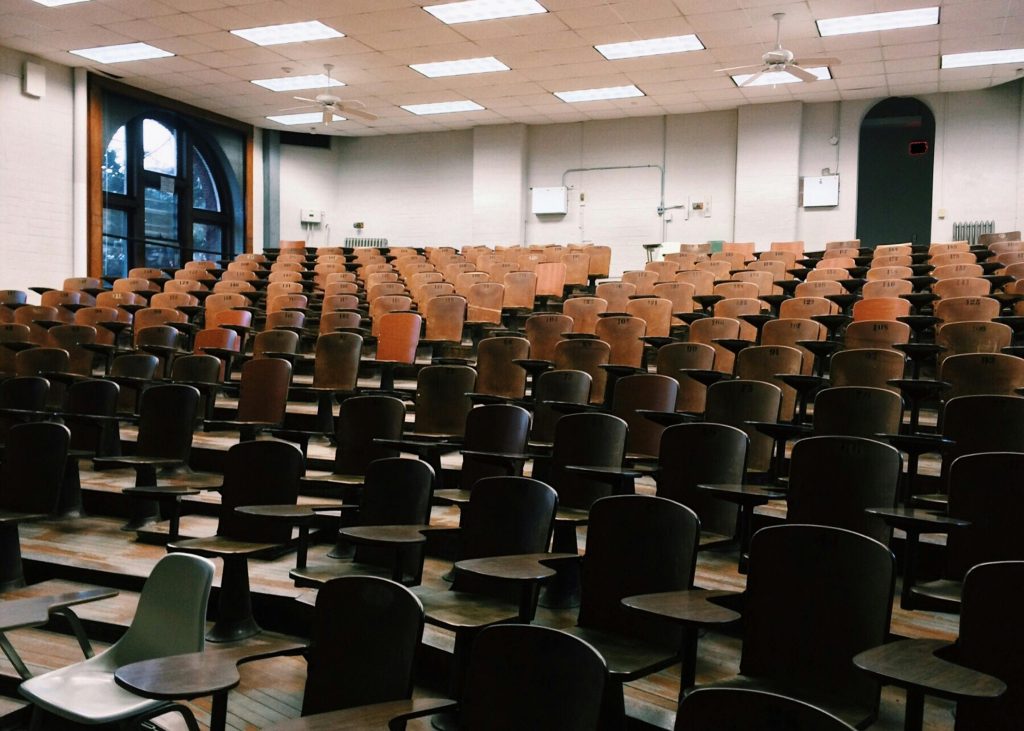
When we talk about dementia, it’s often in exacting terms: It’s something that can be eliminated or cured. But the emphasis of the conference Imagining Dementia Futures at University of Manchester (22-25 February) was on how we can support people living with dementia to live meaningfully to the best of their abilities. Speakers imagined a range of future scenarios with a strong emphasis on the arts and were a combination of researchers, artistic practitioners, and, most importantly, people with dementia.
Dominic Campbell’s talk ‘Compassionate Community?: What Culture Might Grow Out from Residential Care’ discussed a project in a hospice where an artist used clay making to bring residents together and from this playful environment, intimate conversations were formed regarding mortality. Campbell is a cultural producer with an impressive CV who explained how he started out making costumes for carnivals and from this learned the value of transformative experiences and how these principles can be applied to active ageing and our perceptions of residential care.

Embodied experience was a recurring theme that drew many of the talks together. Ezinma Mbeledogu, who lectures in fashion, discussed how putting on clothes, such as a Sari, was evocative for her Windrush elders, leading to discussions on identity, race, and belonging. Joanne Knowles discussed how reminiscence projects such as football nostalgia groups and Men’s Sheds have helped men come together through a shared interest and wanted to apply these principles to female magazine reading groups, using Jackie and Just Seventeen as a means of triggering memories of adolescence. This particularly resonated with me as I remember the excitement on a Saturday morning when the postman delivered copies of Eagle, Beano, and Just Seventeen to my siblings and me. We were so excited we would sit by the front door from 7am, eagerly awaiting that magic hand to push print media through the letterbox.
An audience member commented that as memory becomes more challenging and words more confusing, music, clothing, and play become ever more important in forming connections.

The talk that inspired and surprised me the most was by an American transgender nonbinary person called Daithi Clayton. Daithi, who has dementia and is 70 years old, discussed how AI bots were helping them to live a fulfilling and meaningful life by providing a personalized form of conversation and connection. They then gave us a live example, sharing a conversation with the AI Bot about an evening they spent together watched John Waters films. I commented that the conversation with the AI felt a bit formulaic and lacked authenticity, and Daithi explained this was a ‘family friendly’ version they had played, and that the rabbit hole went a lot deeper if you tweaked the settings! Daithi oozed charisma and I imagine could convince anyone of anything. But there was a real urgency to their talk in terms of developing these types of adaptive technologies, especially given the recent change in American government. Daithi is American Irish and lives in Belgium.
My talk was on the comic ‘The Knowledge’, created as part of the Whatever People Say I Am series with Thinkamigo Digital. Each comic challenges stereotypes and attempts to put a human face to statistics and is built on academic research whereby I read dense reports and papers and extract the key points that shape the narrative of the comic. Then it’s a case of finding the human face for the story. This takes as long as it needs to as a story will only show its face when it’s ready. ‘The Knowledge’ was the result of a year of interviews and visits to various care homes.
The comics include contextual essays by the key researcher or participants. This is so that readers can see exactly what has informed the narrative and we can be transparent about our research. If we’re challenging stereotypes, we must be clear about what we base our evidence on. Another purpose of this process is to take complex information and simplify it so that it’s accessible to the people it purports to represent. The contextual essays provide links to the original articles so that readers can go deeper should they require.
I was asked what challenges there were in making a comic about dementia. Well, there’s many, particularly given the vulnerability of the people you are talking to and how this information is used. But the most difficult thing is not being able to include everyone’s story, which is worrying, because you don’t want participants to then feel their lives are not interesting if they are not included.

As this was a dementia conference, I shared my own experiences of dementia caring for my 82-year-old mother-in-law. One way we have bonded recently is watching snooker together. She enjoys the repetition of red-black-red-black and shouts out the score for each ball. My fiancé has given up her career to be a 24-hour carer for her mum and so I am also conscious that while I was here giving the talk, she was one of the 5.8 million unpaid carers in Britain unable to leave the house.
The Imagining Dementia Futures conference was organised by MaoHui Deng, Sarah Fox, Kate Maguire-Rosier and Réka Polonyi, and hosted at the Martin Harris Centre for Music and Drama at the University of Manchester.


